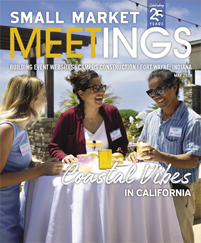Tonya, you key in on a sense that might be overlooked but that is primary to speaking: the sound of someone’s voice. You’ve said you listen carefully, and if a speaker has a voice that is weak or grating, you won’t hire them.
TF: You need a big, interesting personality to capture the attention of everyone. I am very funny about voice. I won’t hire someone who has a mousey voice.
You both have several ways that you search for keynote speakers. Lianne, you have said you scour bookstores, looking for new management or business authors who might make interesting speakers. You both recommend using a speakers bureau to help narrow the search.
TF: A speakers bureau has the ability to screen many more speakers than I have the time for. A bureau can work as an extension of your own staff. My favorite, Garrett Speakers International, even offers personal assistance on-site with the speaker.
Lianne, you point out that having a speakers bureau involved from the start allows them to hear what your company is looking for in a speaker. Doing so, you said, prevents the personal bias within management and can result in a speaker that is a better fit.
LP: I want my bureau to have a seat at the table to hear the speaker’s ideas bouncing around the table. So they will hear things like “I want a keynote speaker that will energize middle-age females with a good sense of humor, but not be vulgar or risque.”
Tonya, you recommend some ways to do background checks, so to speak.
TF: I want to talk to the planner who has hired the speaker if I can so I can ask them, “Did the speaker deliver as promised? Were they easy or difficult to work with? Could they deal with a change in the meeting — for example, if their presentation time had to be shortened — or did they have such a canned speech that they were unable to change at a moment’s notice? If you are working with a speakers bureau, oftentimes they can get you into a conference to listen to a speaker you are interested in hiring.
Also, I try to find YouTube videos of speakers I am considering. They are usually out there. I’ve found that live video showcasing the speaker at an actual event does not lie, even if the video is poor quality. Sometimes you can even find testimonials from the audience, which are also valuable.
Have you learned any lessons about hiring keynote speakers?
TF: If you can avoid it, don’t ever hire your boss’ friend, your friend’s friend or your board member’s friend. The end result can be embarrassing for you and your boss.
Tonya, you said this happened to you in a previous job. You had to hire one of your boss’ colleagues first to speak at an education session and then, a year later, as a keynote speaker. She was knowledgeable, but she had an irritating voice, a bad speaking style and she was a high-maintenance speaker. Sadly, your boss had never heard her speak until she was a keynote speaker at your major conference.
TF: She was the lowest scoring keynote speaker I had ever hired. The lesson learned for my boss, the hard way, was that a knowledgeable person does not always make the best speaker.
Lianne, you have experienced what all meeting planners have seen at one time or another: the speaker who goes off in an unscripted direction.
LP: Once, a keynoter decided to open with an invocation. It wasn’t apparent when dealing with the speaker or from his website that religion would be a part of his speech.
Then there was the time I had hired a singer to sing two songs. She had a nine-minute time slot during lunch. She got up on the stage and started talking and was up there for 45 minutes. My boss said, “What are we going to do?” I said, “Nothing.” The crowd loved her, and it was during a lunch program, so it worked out.
Tell me about some of the ways you help your speaker do a better job for you.
LP: All speakers need a “minder,” someone who will touch base with the speaker when he or she arrives; give them instructions verbally, even though we have sent the instructions ahead of time; be in the green room waiting for them and walk them to the back of the stage; and see them off when they leave the conference. I recruit people out of my own conference staff to be minders.
Tonya, you point out that one way to quickly give a speaker a quick synopsis of a conference is to share its theme.
TF: We had a conference theme that was M to the Third: Meetings, Membership and Music. The keynote speaker talked about the importance of being gathered together, the power of voices raised in unison and the unifying quality of music.
Give your keynote speaker one or two major takeaways that you need for them to share. They aren’t going to change their presentation 100 percent, but they will have a portion that they will massage a little bit to emphasize whatever your message is for the organization.











